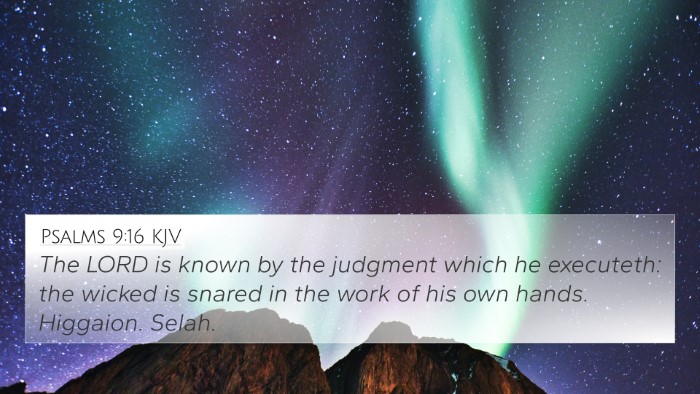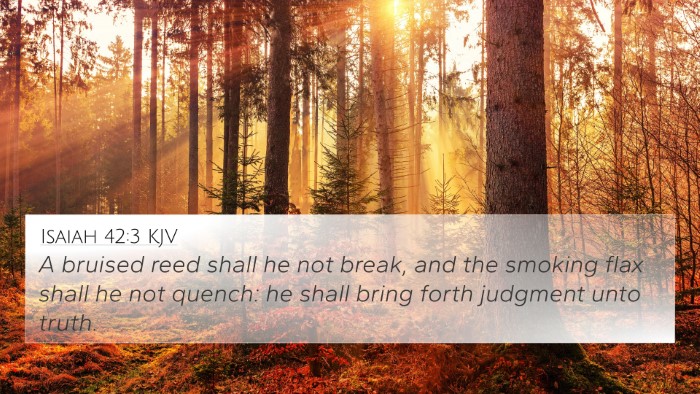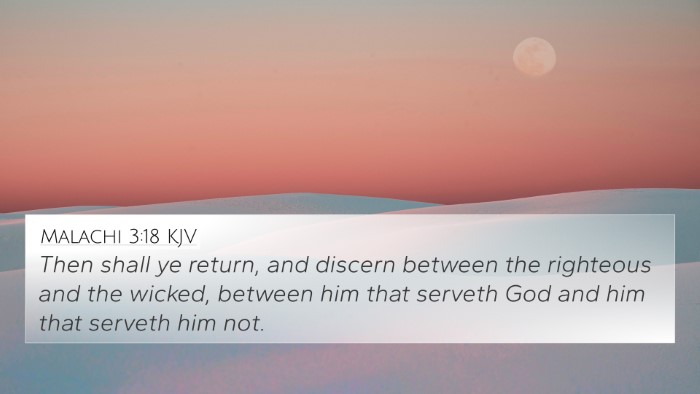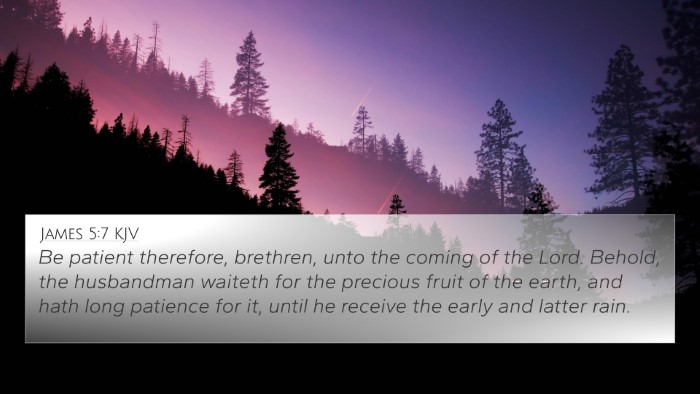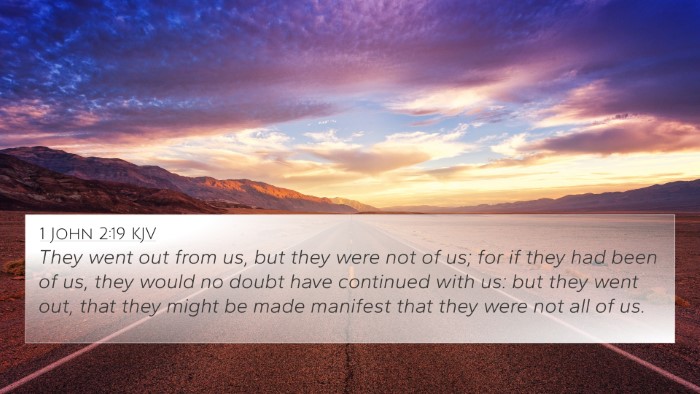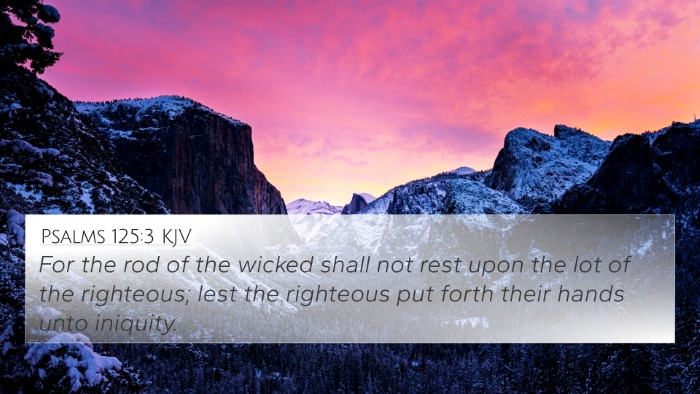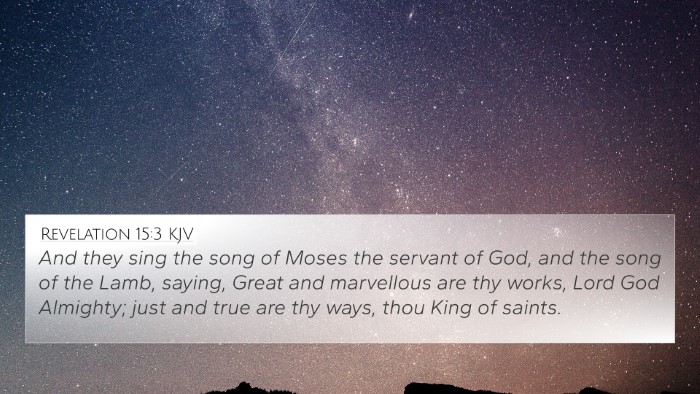Psalms 94:15 - Understanding the Verse
Psalms 94:15 states, "For judgment shall return unto righteousness: and all the upright in heart shall follow it." This verse reflects fundamental themes of divine justice and the promise of righteousness, highlighting God's commitment to restoring judgment and equity in the lives of His people.
In this verse, we see a declaration that justice will ultimately prevail. The psalmist assures believers that at the appointed time, God will enact justice, bringing righteousness to the forefront. The upright, those whose hearts are aligned with God's truth, will embrace this restoration of justice.
The profound message in Psalms 94:15 resonates with various other passages throughout the Bible. Below, we explore the interpretations and connections established by renowned biblical commentators, such as Matthew Henry, Albert Barnes, and Adam Clarke. Their insights help illuminate the layered meanings found within this scripture.
Commentary Insights
Matthew Henry's Commentary
Matthew Henry interprets this verse as a reassurance that God will not forsake justice. He emphasizes that divine judgment is intrinsic to God's nature, and those who are righteous will be ultimately vindicated.
Albert Barnes' Commentary
Albert Barnes notes that the 'judgment' referred to means the establishment of moral order and righteousness on earth. He expresses confidence in God's governance and prophetic outcome that the just will have their day of reckoning in contrast to the ungodly.
Adam Clarke's Commentary
Adam Clarke emphasizes the communal aspect in this verse, suggesting that God’s judgment not only applies to individuals, but also to nations. He sees the 'upright in heart' as those living in accordance with God's commandments, highlighting that their alignment with righteousness will guide them towards divine truths.
Cross References for Psalms 94:15
Understanding the connections between Bible verses expands our comprehension of biblical principles. Psalms 94:15 can be related to several other significant passages:
- Proverbs 21:15: "It is a joy for the just to do justice: but destruction shall be to the workers of iniquity."
- Isaiah 30:18: "And therefore will the Lord wait, that he may be gracious unto you, and therefore will he be exalted, that he may have mercy upon you: for the Lord is a God of judgment: blessed are all they that wait for him."
- Matthew 5:6: "Blessed are they which do hunger and thirst after righteousness: for they shall be filled."
- Romans 2:6-7: "Who will render to every man according to his deeds: To them who by patient continuance in well doing seek for glory and honour and immortality, eternal life."
- Revelation 21:4: "And God shall wipe away all tears from their eyes; and there shall be no more death, neither sorrow, nor crying, neither shall there be any more pain: for the former things are passed away."
- Lamentations 3:34-36: "To crush under his feet all the prisoners of the earth, to turn aside the right of a man before the face of the most High, to subvert a man in his cause, the Lord approveth not."
- Psalms 72:2: "He shall judge thy people with righteousness, and thy poor with judgment."
Thematic Connections
The exploration of Psalms 94:15 leads us to a greater thematic understanding of righteousness throughout the Bible. This entails:
-
Divine Justice: This verse underscores God's unwavering principle of upholding justice and righteousness, reflected in many Old Testament teachings.
-
Righteousness and Uprightness: The clear distinction between the upright and the unrighteous serves as a recurrent theme, guiding us to seek holiness in various scriptural contexts.
-
The End Times and Restoration: The promise of future restoration and divine intervention speaks to eschatological expectations found throughout scriptures.
Conclusion
Psalms 94:15 provides a powerful assurance that seems to echo throughout the Biblical narrative. It invites readers to reflect on the nature of justice and righteousness as critical components of faith.
As we engage with other scriptures in the context of cross-referencing, we gain a deeper understanding of the interconnectedness of God’s Word, reinforcing the significance of studying these references to enrich our spiritual journey.






